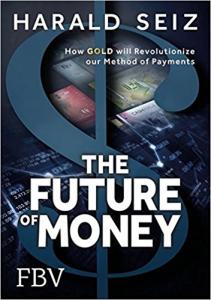YouGov Survey on Cryptocurrencies: Most Germans know what cryptocurrencies are – but are reluctant to invest in them
STUTTGART, BADEN WüRTTEMBERG, GERMANY, May 28, 2018 /EINPresswire.com/ -- Fifty-eight percent of Germans have heard of cryptocurrencies and know approxi-mately or even exactly what the term means. Thirty-eight percent believe that their importance will increase; only 21 percent foresee a loss of significance. However, the level of awareness and the ascription of a continuing high significance are in stark contrast to the answer to the question as to whether Germans would also invest in cryptocurrencies, in comparison to, say, stocks. Only eight percent say that they would invest all or the larger part of the money available to them for investment in cryptocurrencies rather than in equities. This attitude would probably change if cryp-tocurrencies were associated with a value that is recognized as stable, for example with precious metal. Fifty-three percent of those Germans surveyed believe that cryp-tocurrencies would become more attractive; only 25 percent answered this question with No.
These are the core results of a recent survey conducted by YouGov Deutschland GmbH carried out on behalf of the KARAT Gold Cooperation, which has been of-fering the cryptocurrency Karatgold Coin for two months.
The creator behind Karatgold Coin, founder and owner of the KARAT Gold Cooperation, Harald Seiz, explains the survey results: "The survey shows on the one hand the high level of awareness, but also how reluctant Germans are to invest a large part of the funds they have available for financial investments in it. This attitude is also likely due to the exchange rate fluctuations of Bitcoin and Co. However, according to the responses, this reticence would change if the hitherto purely virtual values were sup-ported by a hard, material value such as precious metal."
Especially where the level of awareness of cryptocurrencies is concerned do interes-ting socio-demographic differences arise: While 71 percent of men say they know approximately or even exactly what cryptocurrencies are, only 46 percent of women answer similarly. Age also clearly plays a major role in the knowledge of cryptocur-rencies: The younger the people interviewed were, the more they seemed to know "exactly" what lies behind cryptocurrencies – 30 percent of those 18- to 24-year-olds surveyed make this claim, with a steadily downward trend among those up to 55 years of age and older, of whom only 14 percent make this claim. The educational level also seems to have an effect on the knowledge of cryptocurrencies: 73 percent of university graduates emphasize being approximately or exactly informed, while only 52 percent of those who have a teaching or comparable degree can do so.
When it comes to a willingness to invest in cryptocurrencies, there are few significant differences. Nevertheless, there is a slight trend: people under 35 years of age are more willing to invest at least a large part in cryptocurrencies than respondents over 35 (11% vs. 7%). Even for a sizeable portion of the under-35-year-olds – compared with the rest of the adult population – the attractiveness of cryptocurrencies in-creases when it is deposited with precious metal.
Harald Seiz concluded: "The figures show a mixed picture: the awareness of cryp-tocurrencies is great, but also the inhibition when it comes to investing. We expect this to change in the medium term. In our opinion, cryptocurrencies will become an integral part of payment transactions as well as of investment products. With an in-creasing consolidation and also professionalization of the market – for example through a flanking hedge – the acceptance and also the willingness to invest will in-crease.
"The data used is based on an online survey conducted by YouGov Deutschland GmbH, in which 2051 persons participated between 11/05/2018 and 14/05/2018. The results were weighted and are representative of the German population from 18 years of age."

These are the core results of a recent survey conducted by YouGov Deutschland GmbH carried out on behalf of the KARAT Gold Cooperation, which has been of-fering the cryptocurrency Karatgold Coin for two months.
The creator behind Karatgold Coin, founder and owner of the KARAT Gold Cooperation, Harald Seiz, explains the survey results: "The survey shows on the one hand the high level of awareness, but also how reluctant Germans are to invest a large part of the funds they have available for financial investments in it. This attitude is also likely due to the exchange rate fluctuations of Bitcoin and Co. However, according to the responses, this reticence would change if the hitherto purely virtual values were sup-ported by a hard, material value such as precious metal."
Especially where the level of awareness of cryptocurrencies is concerned do interes-ting socio-demographic differences arise: While 71 percent of men say they know approximately or even exactly what cryptocurrencies are, only 46 percent of women answer similarly. Age also clearly plays a major role in the knowledge of cryptocur-rencies: The younger the people interviewed were, the more they seemed to know "exactly" what lies behind cryptocurrencies – 30 percent of those 18- to 24-year-olds surveyed make this claim, with a steadily downward trend among those up to 55 years of age and older, of whom only 14 percent make this claim. The educational level also seems to have an effect on the knowledge of cryptocurrencies: 73 percent of university graduates emphasize being approximately or exactly informed, while only 52 percent of those who have a teaching or comparable degree can do so.
When it comes to a willingness to invest in cryptocurrencies, there are few significant differences. Nevertheless, there is a slight trend: people under 35 years of age are more willing to invest at least a large part in cryptocurrencies than respondents over 35 (11% vs. 7%). Even for a sizeable portion of the under-35-year-olds – compared with the rest of the adult population – the attractiveness of cryptocurrencies in-creases when it is deposited with precious metal.
Harald Seiz concluded: "The figures show a mixed picture: the awareness of cryp-tocurrencies is great, but also the inhibition when it comes to investing. We expect this to change in the medium term. In our opinion, cryptocurrencies will become an integral part of payment transactions as well as of investment products. With an in-creasing consolidation and also professionalization of the market – for example through a flanking hedge – the acceptance and also the willingness to invest will in-crease.
"The data used is based on an online survey conducted by YouGov Deutschland GmbH, in which 2051 persons participated between 11/05/2018 and 14/05/2018. The results were weighted and are representative of the German population from 18 years of age."
Harald Seiz
Karatbars International GmbH
+1 224 829 00 47
email us here
KaratGold Coin: Gold mine worth 900 million gives security - interview with CEO Harald Seiz
Legal Disclaimer:
EIN Presswire provides this news content "as is" without warranty of any kind. We do not accept any responsibility or liability for the accuracy, content, images, videos, licenses, completeness, legality, or reliability of the information contained in this article. If you have any complaints or copyright issues related to this article, kindly contact the author above.


